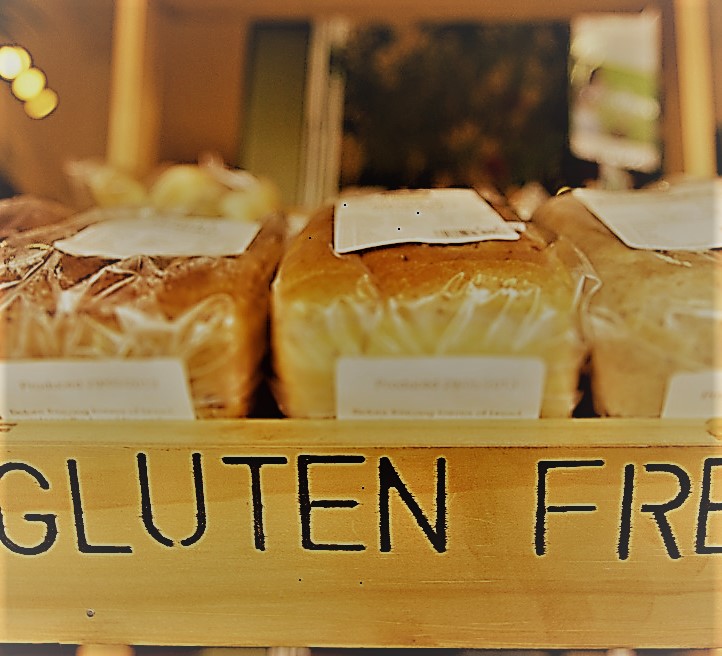
To gluten or not to gluten
How many of you are already avoiding gluten because you think it’s ‘healthier’? How many of you that said yes are merely doing it as an excuse for a low-carb diet, with a view to weight loss? The truth is many people nowadays are avoiding gluten, and for some it’s a very good decision. All of us could at least benefit from reducing the amount of gluten in our diet, here’s why.
Remember the old food pyramid that told us 50% of our diet should come from grains and cereals? Not only was this incorrect information (veg and fruit have now been replaced on the bottom rung), but the type of grains we were eating were almost entirely wheat based. A huge proportion of pre-packaged and processed foods contain gluten so it’s not just the obvious breads and pastas that contributed. The main reason? It’s a cheap form of carbohydrate due to the fact that the US government (the main source of wheat production) subsidises it! Wheat is also used as a flavour enhancer, so whilst humans able to have evolved to tolerate wheat, we are eating far too much of it!
Apart from over-consumption there are lots of reasons why people are getting more sensitive to gluten;
• Gluten is an inflammatory food that causes leaky gut syndrome in sensitive individuals. Leaky gut syndrome, as the name suggests, is a condition whereby the cells in the wall of the intestines become more permeable, allowing substances to pass through the wall where they can end up circulating in blood or become trapped in the abdominal cavity. This can cause all sorts of conditions in the body that may seem unrelated to the gut such as eczema, psoriasis and autoimmune conditions including rheumatoid arthritis, lupus and multiple sclerosis.
• Chemicals & pesticides used in the wheat production process are winding their ways into our bodies. In the case of wheat, it’s a substance called glyphosate, found in Round Up, that is used just before the harvesting of non-organic wheat crops.
• Greater yields of wheat crops have led to a decrease in nutritional content, compared to more ancient varieties of wheat.
• New wheat forms such as ‘dwarf wheat’ which have been modified to contain a higher amount of gluten, thereby improving the consistency and ‘sponginess’ of foods. There’s also a theory that modern wheat contains a peptide (gliadin) that didn’t exist in ancestral varieties – this is thought to be an acquired survival mechanism of the plants; ie. the associated digestive upsets in its consumers would lead to alternate food choices.
• Many people today have poor gut health resulting from refined diets, repeated use of antibiotics etc. Without a healthy microbiome (gut flora) the body struggles to digest foods properly.
• Shorter baking times for bread: time = money means less love goes into making the bread you love to eat. Proper processing of grains involves soaking, fermenting and sprouting of grains to reduce the ‘anti-nutrients’ (substances that inhibit the digestive process) and allow the foods to become more bio-available in the body. The entire process should take between 3-4 weeks but modern times means everything has to be done fast. Instead, corners get cut. We suffer as a result.
• Last but not least, we must consider the introduction of grains to our diet. Wheat was introduced during the Middle Ages in Europe, a part of the world where more than 30% of people carry the gene for Coeliac Disease. Considering our population has evolved predominantly from Europe, you have to wonder…
Symptoms of a sensitivity or intolerance can include any type of digestive upset to autoimmune conditions listed above. Keeping a food diary can be an invaluable tool in diagnosing sensitivities as often symptoms become exacerbated in the minutes and hours after eating certain foods.
Coeliac disease is hereditary and much less common than gluten sensitivity. Having said that, the number of people with Coeliac Disease is increasing. People with Coeliac Disease have flattened microvilli; the tiny finger-like projections on the wall of their intestines, as a result inflammation caused by gluten. It is these microvilli that are responsible for absorbing nutrients into our blood stream, so when they are not functioning optimally the sufferer can become malnourished.
For those that are just sensitive to gluten (thought to be up to 60% of adults, and increasing) then you will more than likely just need to eliminate or reduce your wheat intake. Diagnosed Coeliacs need to avoid grains that contain gluten – these include Barley, Rye, (Oats – although some people can tolerate this), Wheat and Spelt. If you suspect you may be Coeliac or if you have any autoimmune conditions then see your healthcare professional to get tested as soon as possible.
Fortunately today there are many healthy alternatives to wheat and most restaurants and cafes have gluten free options on the menu. When cooking try to experiment with other grains such as quinoa, millet and buckwheat as well as some of the ancient style grains like teff. When baking, look for recipes that substitute flour with almond meal or buckwheat flour. Your body will love the variety, even if you’re not sensitive to gluten! Our body’s need the fibre from grains so it’s important to substitute rather than eliminate altogether. Need inspiration? Head over to my recipes page for some delicious gluten free dishes!






